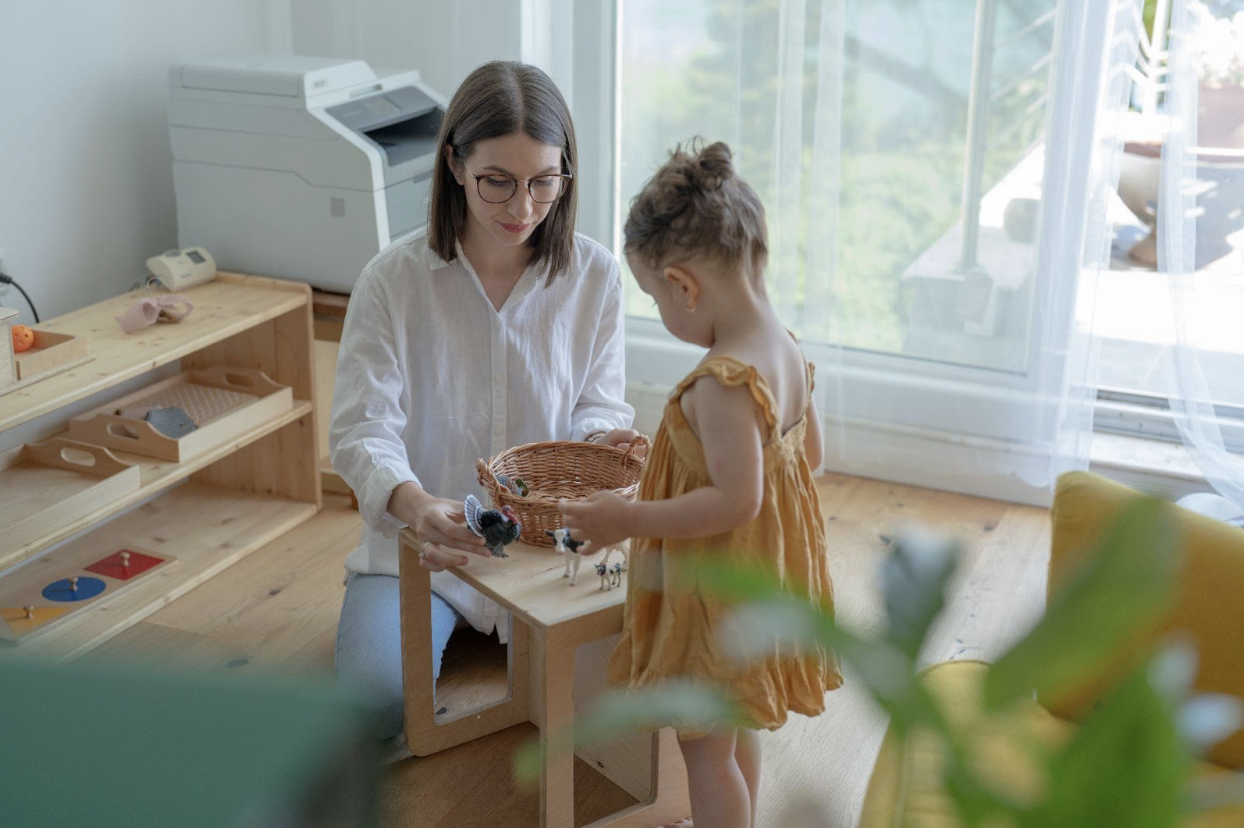
Montessori philosophy doesn’t just focus on one aspect of a child. Instead, it focuses on the child as a whole. That means, unlike traditional schools that focus solely on cognitive abilities, Montessorians focus on the physical, emotional, social, and cognitive aspects of learning.
In this article, we’ll talk about how learning in a Montessori classroom highlights motor and cognitive development, as well as social and emotional development.
Physical Development
Maria Montessori, the founder of Montessori-style education, believed that knowledge, learning, and movement were all connected—and that’s why movement in a Montessori classroom is key. Here at Austin Children’s Academy, children move throughout the day and are never forced to be physically static. This promotes not only physical growth, but maturity and bodily autonomy as well.
Playing outside is also another big component of learning at a Montessori school. Our philosophy values nature and all the beautiful things within it, so of course we’re going to expose children to all it can offer. Children learn about the world through their senses when they play outdoors, naturally studying plants, rocks, and animals while treating the outside world as their classroom.
Cognitive Development
We value creative thinking, problem-solving skills, and a child’s drive to challenge themselves. Because the world is their classroom, a Montessori child will learn all about the different cultures and values around the globe, along with how they play a part in all that exists around them.
When learning with Montessori, a child understands they are a part of something much bigger than the four walls of their classroom or even their home or neighborhood. They understand the responsibility to protect the planet and respect the natural environment around them.
Montessori schools allow children to move at a pace that makes sense to them and learn about subjects that interest them. While group lessons occur on a regular basis, our education style is more heavily focused on the individual learner and what they can do as a self-led student.
We prepare our children for the world with art, music, and computer programs. We have a handle on our society that’s quickly progressing, which means we can accurately prepare students for their futures in the most well-rounded and balanced way.
Emotional Development
We believe it’s incredibly important for children to learn to both understand and manage their emotions. The Montessori educational style teaches children how their actions affect others and what that means for every classroom community.
Respect is greatly emphasized in Montessori education, and getting into a disagreement means talking through feelings and resolving issues peacefully. This helps foster emotional intelligence in our students, which ultimately creates stronger bonds between them.
Social Development
Social interactions are very important at our school, which we highlight through the implementation of multi-age classrooms. Unlike traditional schools, where children are lumped together based on their age, we group children together based on their developmental stages.
In a multi-age classroom, children are encouraged to interact with children of varying ages, which helps young children feel more comfortable with older children, and vice versa. This helps grow leadership skills in older children who naturally fall into the role of “mentor” with young students, and it lets the young students know that they can look to their peers for guidance and, one day, become mentors themselves.
Teaching the Whole Child
At Austin Children’s Academy, we spend every day teaching the whole child. To learn more about what we do here, get in touch with us today. We’d love to hear from you!





















